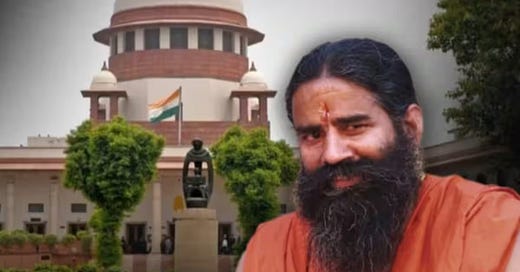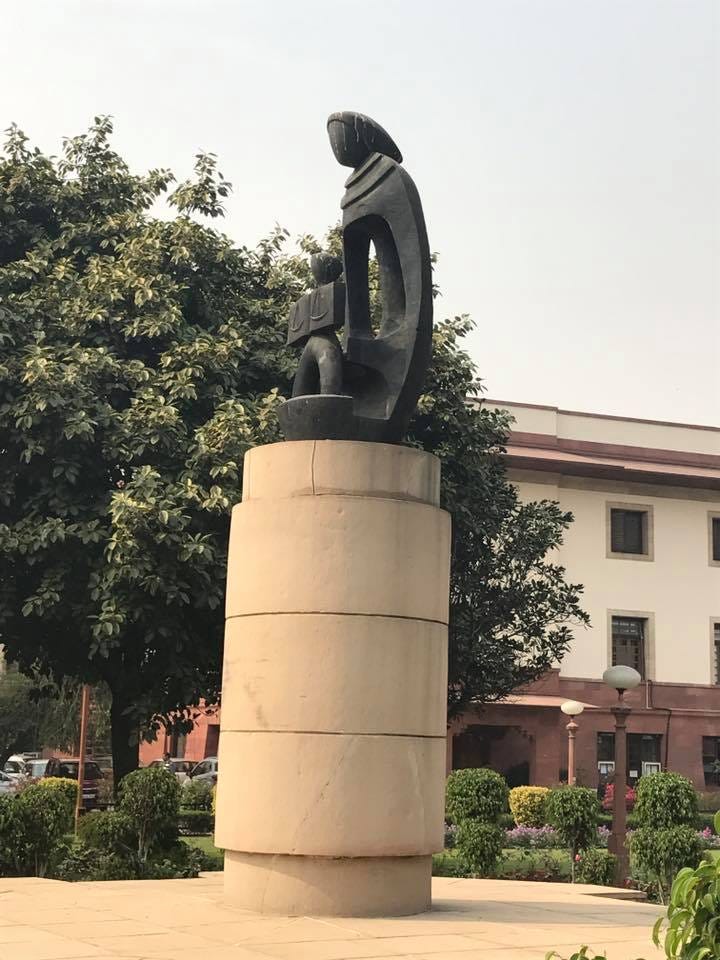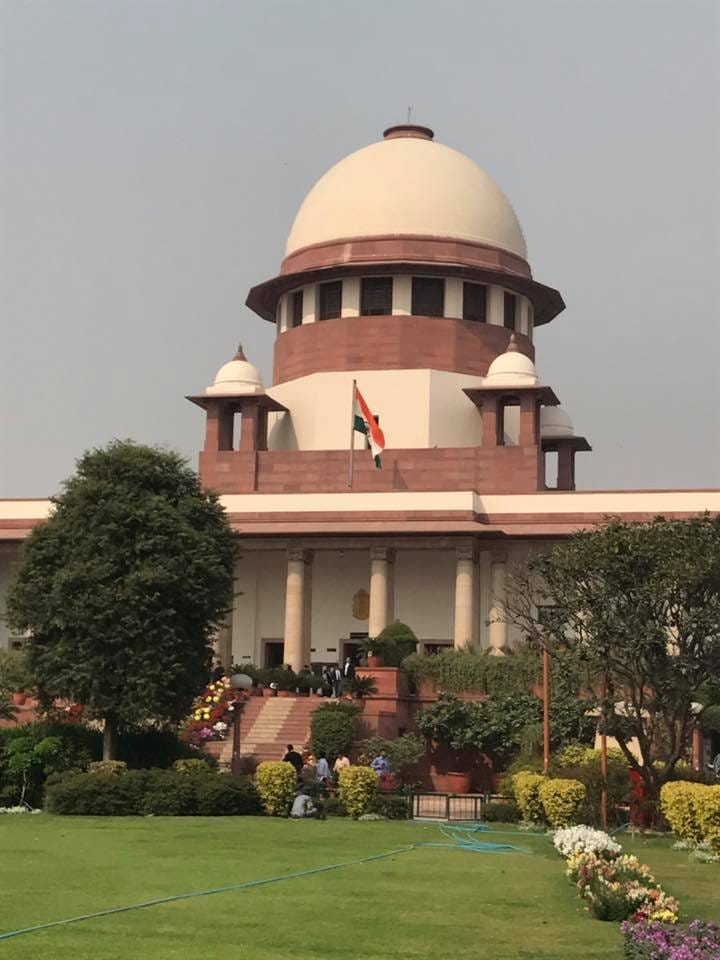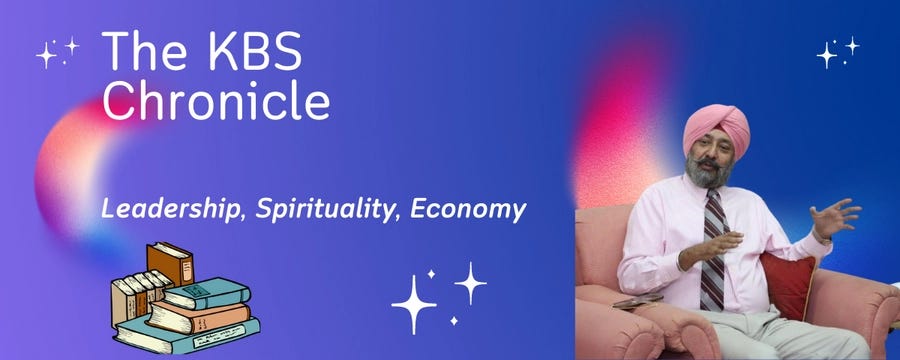Supreme Court's Firm Stance on Patanjali's Contempt Case
Oral apology of Pitanjali's "dynamic duo" unsatisfactory; must submit sworn affidavits with unconditional apology. Next date 10th April— both shall remain present.
The Apex Court's Unwavering Directive
In an unprecedented move, the Supreme Court of India has displayed its unwavering commitment to uphold the sanctity of its directives and strict compliance thereof, casting a spotlight on Patanjali Ayurved Ltd., its Managing Director Acharya Balkrishna, and co-founder Baba Ramdev. The duo's presence in Apex Court, albeit with an oral apology, fell short in the absence of an unequivocal written apology in form of a sworn affidavit, leading to a stern direction instruction for their reappearance on10th April, the date of next hearing.
Background and Progression of the Contempt Case Against Patanjali
Initiation of the Contempt Proceedings
The Supreme Court's engagement with this matter initiated upon a petition by the Indian Medical Association (IMA), which challenged Patanjali Ayurved's advertisements. These advertisements were critiqued for undermining allopathic medicine and making unverified claims about curing various diseases. The Division Bench, comprising Justices Hima Kohli and Ahsanuddin Amanullah, had taken cognizance of these contentious advertisements, leading to the issuance of a Contempt notice to Patanjali Ayurved and its Managing Director on February 27. This action was prompted by Patanjali's continued publication of misleading advertisements despite a prior undertaking to the Court to abstain from such practices.
Escalation and Court's Directive for Personal Appearance
The situation escalated on March 19 when it was brought to the Supreme Court's attention that Patanjali had not responded to the Contempt notice. This led the Court to order the personal appearance of Acharya Balakrishna and Baba Ramdev, both of whom were implicated in the issuance of the controversial advertisements post their undertaking to the Court. The Court underscored the necessity for this case to reach a conclusive end, emphasizing the lack of a formal apology from Baba Ramdev, as his affidavit was noticeably absent from the Court's records.
The Court's Firm Stance on Apologies and Further Proceedings
During the proceedings, Senior Advocate Balbir Singh, representing Baba Ramdev, presented the defendants' readiness to offer an in-person apology. However, this gesture failed to meet the Court's expectations, which insisted on a formalized affidavit to substantiate an unconditional apology. This development illustrates the Court's insistence on adhering to procedural propriety and the seriousness with which it regards the act of contempt of court. Consequently, Baba Ramdev was given a final chance to submit a formal reply within a week, with the Court scheduling the next hearing for April 10. This decision also reiterates the requirement for both parties to be physically present, highlighting the gravity with which the Supreme Court views this matter.
Patanjali's Predicament: A Critical Overview
The Apex Court's dissatisfaction emanates from Patanjali's alleged contempt, stemming from misleading advertisements that purportedly breached an earlier court undertaking. The underlying issue involves the advertisement of medical claims, which the Supreme Court perceives as a direct defiance of its orders, thus raising questions about the integrity and accountability of Patanjali Ayurved.
A Lip Service Apology?
The court rebuffed the apologies offered by Balkrishna and Ramdev as insincere, labeling them as mere "lip service." This term of reproach underscores the court's expectation for genuine remorse, reflected through formal affidavits rather than mere oral submissions. The insistence on such a procedural apology highlights the court's demand for a tangible acknowledgment of wrongdoing and an assurance against future transgressions.
The Role of the Media Department Under Scrutiny
A significant point of contention was the affidavit by MD Acharya Balkrishna, attributing the oversight to the media department's unawareness of the Supreme Court's order. The court's response was unequivocal, emphasizing that ignorance, especially of such a critical nature, cannot be excused and indicating a systemic lapse within Patanjali's communication channels.
Legal Ramifications and the Act's Sanctity
The discourse extended beyond apologies to address the allegations of perjury and the contravention of the Drugs and Magic Remedies (Objectionable Advertisements) Act 1954. The court's firm stance against any attempts to undermine the Act underlines its commitment to safeguarding public health and the legal framework governing medical advertisements.
The Unanswered Question: Union Government's Inaction
A poignant aspect of this case is the Supreme Court's query regarding the Union Government's inaction against Patanjali's claims, especially during the critical period of the COVID-19 pandemic. This inquiry sheds light on the necessity for regulatory oversight and the enforcement of existing laws to prevent the dissemination of unverified medical claims.
Summing Up: Upholding the Judiciary's Authority
The Supreme Court's stringent approach in this case serves as a potent reminder of the judiciary's pivotal role in maintaining the rule of law, especially against entities that wield significant influence. As the case progresses, it is imperative for all parties involved to reflect on their responsibilities and the broader implications of their actions on public trust and legal compliance. The court's determination to pursue this matter to its logical conclusion underscores the principle that no individual or entity is above the law, reinforcing the judiciary's role as the guardian of justice and public welfare.
The Impending Verdict: A Call for Accountability
As the Supreme Court gears up for the proceedings on April 10th, the spotlight not only intensifies on the 'dynamic duo' of Patanjali but also casts a discerning gaze towards the operational integrity of the Department of AYUSH of Government of India and the relevant statutory authority in Uttarakhand. This scenario underscores a critical expectation from public servants and quasi-judicial bodies to execute their duties with unwavering integrity, devoid of political influence or any external pressures.
The forthcoming hearing is anticipated as a pivotal moment, potentially marking a stringent reinforcement of accountability within public service. Observers and stakeholders alike are poised on the edge of their seats, awaiting a resolution that might not only chastise the involved parties for their misdemeanors but also set a precedent emphasizing the paramount importance of adherence to judicial mandates and the rigorous performance of official responsibilities. This climactic juncture signifies a crucial test of the judiciary's resolve in upholding the principles of justice, impartiality, and the uncompromising enforcement of the law.
While not directly connected with the forthcoming Lok Sabha elections, the Supreme Court’s potential verdict on 10th April could play a significant role in the perception game and the media hype, as India inches forward towards the polls.








